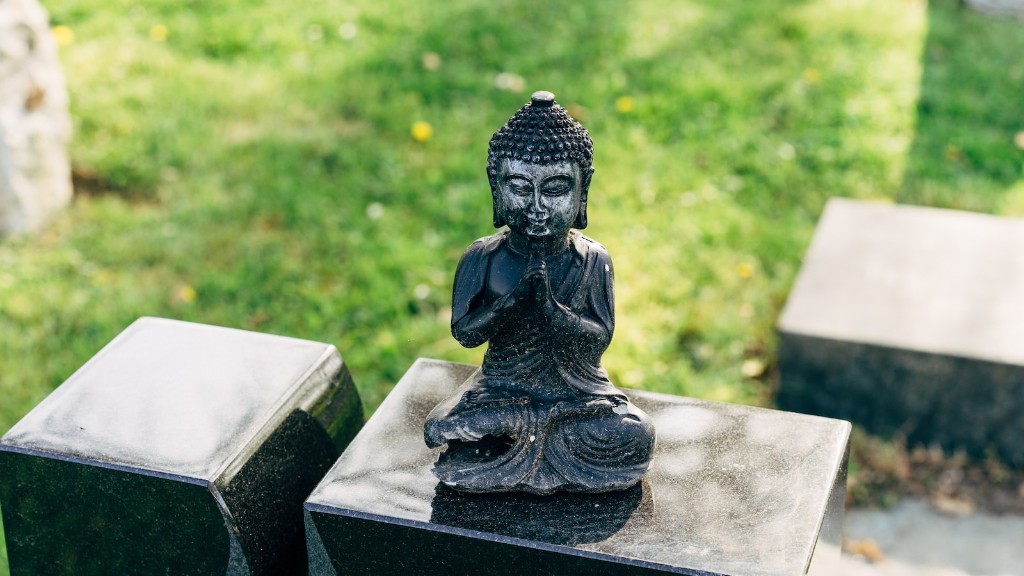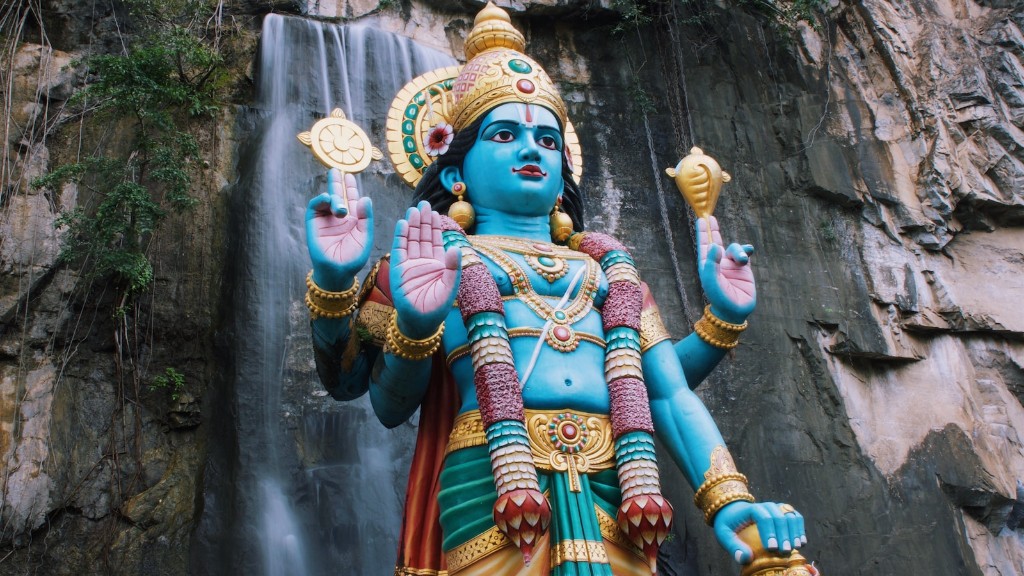In Buddhism, death is not seen as the end, but rather as the start of a new journey. After death, a person’s soul is reborn into another body and they begin the cycle of reincarnation. This cycle of rebirth continues until a person reaches nirvana, which is the ultimate goal of Buddhism.
In Buddhism, death is viewed as a natural process that happens to everyone. What happens after death is less clear, but various Buddhist traditions offer different explanations. Some say that a person’s consciousness is reborn into another body, whereas others believe that consciousness ceases to exist after death.
How long after death is rebirth in Buddhism?
There is a lot of debate among Buddhists about what happens after death. Some Tibetan Buddhists believe that there is an in-between stage known as the bardo which can take up to 49 days. Theravada Buddhists (from Sri Lanka, Myanmar, Thailand, Laos and Cambodia) consider that rebirth can be immediate. Those who attain enlightenment (nirvana/nibbana) do not get reborn upon their death.
In Buddhism, there is no concept of punishment or reward. There is no divine being who decides who goes to hell or heaven. There is merely the illusory results of our thought, words and deeds, which we call karma.
Where do you go after death in Buddhism
The belief in rebirth is a central tenet of Buddhism, and it is something that the Buddha himself taught. The Buddha taught that there is no immortal soul that goes to heaven or hell when we die. Instead, what happens is that our consciousness is reborn into another being. This happens over and over again, in a cycle known as samsara.
There are a number of different beliefs about what happens when you are reborn. Some believe that you are reborn into the same family, or even the same species. Others believe that you are reborn into a different family, or even a different species. The Buddha himself taught that it is not possible to know for sure what happens when you are reborn.
The belief in rebirth is important because it helps to explain a lot of the suffering that we see in the world. It is believed that the reason that we suffer is because we have done bad things in our past lives. If we can break out of the cycle of rebirth, then we can break out of the cycle of suffering.
The belief in rebirth is also important because it helps to motivate people to do good deeds. If we believe that we will be reborn into a better life if we do good deeds, then it gives us a reason
It is important to have a good death in order to have a good rebirth. A good death is one in which the individual is conscious and aware of what is happening to them. The last moments of life can affect the nature of rebirth. The more calm and prepared a person is the better their rebirth is considered to be.
Are there unforgivable sins in Buddhism?
There are five acts that are considered unpardonable sins according to the Dhammasangāni. These are matricide, parricide, slaying an Arhat, slaying a Buddha, and causing division among priesthood. However, Buddhists admit that there are cases where an act that is generally considered to be sinful is not actually a sin.
Buddhist theory instructs the individual to cope with death anxiety and cultivate acceptance through training the mind to detach from personal conceptions and expectations of death and to see the impermanent nature of life. This helps the individual to see death as a natural process that happens to everyone and to accept it as a part of life. Additionally, through detachment from personal conceptions of death, the individual can let go of any attachments to the material world and focus on their spiritual journey.
Who is Jesus in Buddhism?
There is no doubt that there are some similarities between Jesus and Buddha, but there are also some significant differences. For example, while both teach love and compassion, Buddha also emphasized the importance of detachment from material things. Jesus, on the other hand, was a bit more ambiguous on the issue of possessions, telling his followers to “render unto Caesar what is Caesar’s.”
It is difficult to lose somebody close to us, whether they pass away suddenly or after a long illness. In either case, it is painful for the individual who is dying as well as for those who are left behind. The separation of the soul from the body is the end of life, and it can be a very long and painful process.
What are the stages of death in Buddhism
The Tibetan Book of the Dead is a text that describes the stages of death and rebirth. In it, there are instructions on how to meditate during each stage, in order to achieve a peaceful and enlightened state. The author, Geshe Michael Roach, is a Tibetan Buddhist teacher and translator. He has written numerous books on Tibetan Buddhism and meditation, and is considered an expert on the topic.
The five sins of this kind are considered to be the most serious offenses that a Buddhist can commit. These offenses are so serious that they are said to lead to rebirth in the lowest hell.
What is the biggest sin in Buddhism?
These are the most serious offences in Buddhism and should be avoided at all costs.
There is one unforgivable sin, and that is blasphemy against the Holy Spirit. This sin is also known as the sin unto death. Blasphemy against the Holy Spirit is a serious offense, and those who commit this sin will be punished severely.
What are the 3 sins in Buddhism
The Three Poisons are the root cause of suffering because they lead to an unfulfilled and unhappy life. Greed leads to a never-ending cycle of craving and wanting, which can never be satisfied. Ignorance leads to a life of confusion and misunderstanding, which leads to suffering. Hatred leads to a life of anger and resentment, which can never be happy.
Hinduism and Buddhism are two of the world’s major religions. They both originated in India and have influenced each other over centuries.
Hinduism is the oldest religion in the world, and has about 1 billion followers. It is a polytheistic religion, which means that Hindus believe in many gods. The main god in Hinduism is Brahman, who is seen as the creator, sustainer, and destroyer of the universe. Hindus also believe in reincarnation, which is the belief that after someone dies, they are reborn into another form.
Buddhism is a religion that was founded by Siddhartha Gautama, who is known as the Buddha. He was born into a wealthy family, but chose to leave his life of luxury to seek enlightenment. Buddhism has about 500 million followers and is based on the Four Noble Truths, which are that life is suffering, that suffering has a cause, that there is an end to suffering, and that there is a path to the end of suffering.
Both Hinduism and Buddhism have had a significant impact on each other. For example, Buddhism influenced Hinduism by helping to spread the idea of karma and reincarnation. And Hinduism has influenced Buddhism by providing a model
What is world’s oldest religion?
Sanātana Dharma is a Sanskrit term that refers to the eternal set of principles that underlie and guide the universe. It is often used to refer to Hinduism, the main religion of India.Sanātana Dharma is not a static set of beliefs, but a dynamic tradition that has constantly evolving over time.
All component things in the world are changeable. They are not lasting. This is the Buddha’s last advice to the monks.
When someone is dying what do they see
It is not unusual for people who are dying to have hallucinations. They may see or hear things that other people do not. This is because their focus is shifting to “another world.” It is normal for the dying to talk to people or see things that others cannot see.
What happens when someone dies depends on the cause of death. If the person dies of a disease, their body will go through the process of dying. This includes the heart stopping and the person stopping breathing. Within a few minutes, their brain will stop functioning entirely and their skin will start to cool.
Conclusion
In Buddhism, it is believed that after death, one’s consciousness is reborn into another body. This process is known as reincarnation.
After death, Buddhists believe that a person’s consciousness is reborn into another body. This cycle of rebirth, known as samsara, continues until a person reaches nirvana. Nirvana is a state of complete peace and freedom from suffering.



